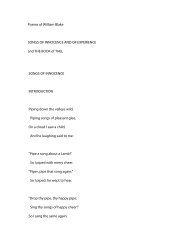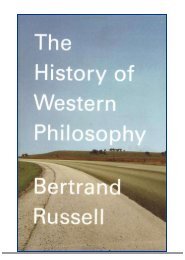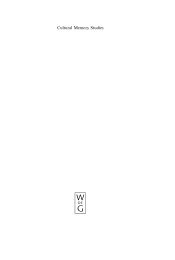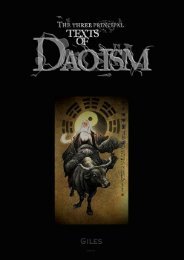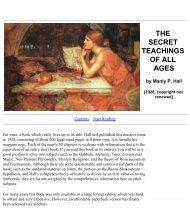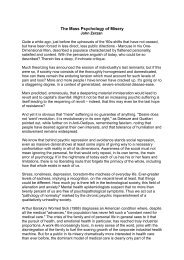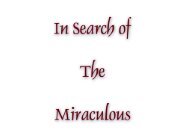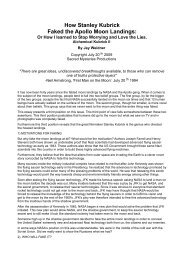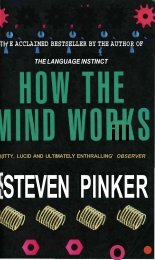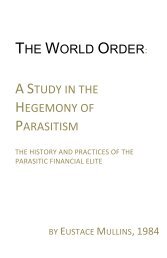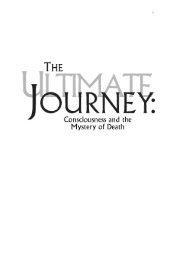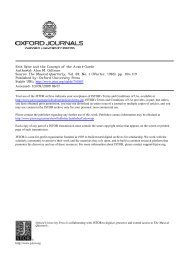The Ever-Present Origin - Michael Goodnight - Editor
The Ever-Present Origin - Michael Goodnight - Editor
The Ever-Present Origin - Michael Goodnight - Editor
- No tags were found...
Create successful ePaper yourself
Turn your PDF publications into a flip-book with our unique Google optimized e-Paper software.
a new and constructive perception of the world or of phenomena is notonly possible but even embodies two essential components with which thisperception can be realized. <strong>The</strong>se components are the temporal and theintegral. <strong>The</strong> temporal component appears in our understanding thatnations are unique dynamic outgrowths of a larger culture and not merelystatic ideas. Moreover, as soon as we take this temporal component intoaccount, the integral moment is also manifest since it integrates theaspects which heretofore have been seen in spatial terms as beinginimical and antithetic into an "integral" or whole, achieving a new point ofdeparture and a new perception in an essential area.For this reason it is remarkable that all of the sciences today aremanifesting a tendency toward an integral mode of inquiry, althoughpositive results are obtained only when "time" is taken into account in theone or the other of its manifestations. This development has given rise tothe recognition that the old antithesis between inorganic and organic doesnot exist, having been replaced by a closer relationship between physicsand biology that is not restricted only to quantum biology. This also holdstrue of biology and psychology where the old dualism of body and soul hasgiven way to a psychosomatic medicine that has evolved an integralconception of man, a perception of man as a whole (as in the work of G. R.Heyer and Arthur Jores). And the aspirations toward integrality in KarlJaspers' existential philosophy form a bridge between psychology andphilosophy. Philosophy itself has even established contact with its longstandingcultural antipode, literarature, by its attempts to form a"metaphysics of literature."<strong>The</strong>se integral achievements that together demonstrate a dissolution oferstwhile antagonisms and dualisms were possible only because theiroriginators had consciously or unconsciously divorced themselves from anexclusively three-dimensional spatial framework. Wherever we encounterthese integral endeavors which take into consideration the full efficacyand varied manifestations of the thematics of time we are conceptuallyapproaching the whole. It is perceptible only through a mode of realizationsufficiently bold to allow us to transcend mere conceptualization whilepreventing us from a regression to the imagistic world of the psyche or themagic vital sphere.Since the realization of freedom from time is a precondition for therealization of the whole, we must observe that both require the additionalcapacity of consciousness crucial to the current mutation of consciousnesswhose elucidation forms the subject of our inquiry.Mere mental wakefulness is not sufficient to realize the new reality.Diurnal wakefulness achieves only partition and division; it sheds light onthe path, the "Tao," as long as mental consciousness dwells in thephenomena of diurnal brightness—itself, like conceptual time, a divider,dividing the night, dreams, sle and the world. As long as its dividing is notan end in itself it indirectly yields valid knowledge of the undivided. But ifthe world is regarded only through wakefulness it loses its undivided73



